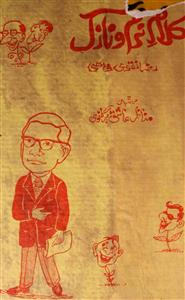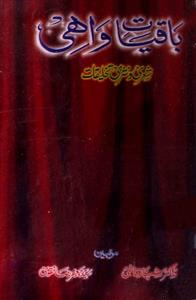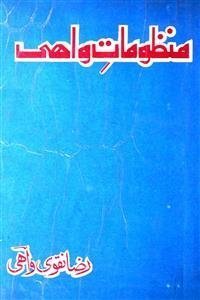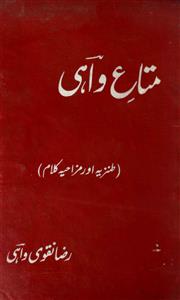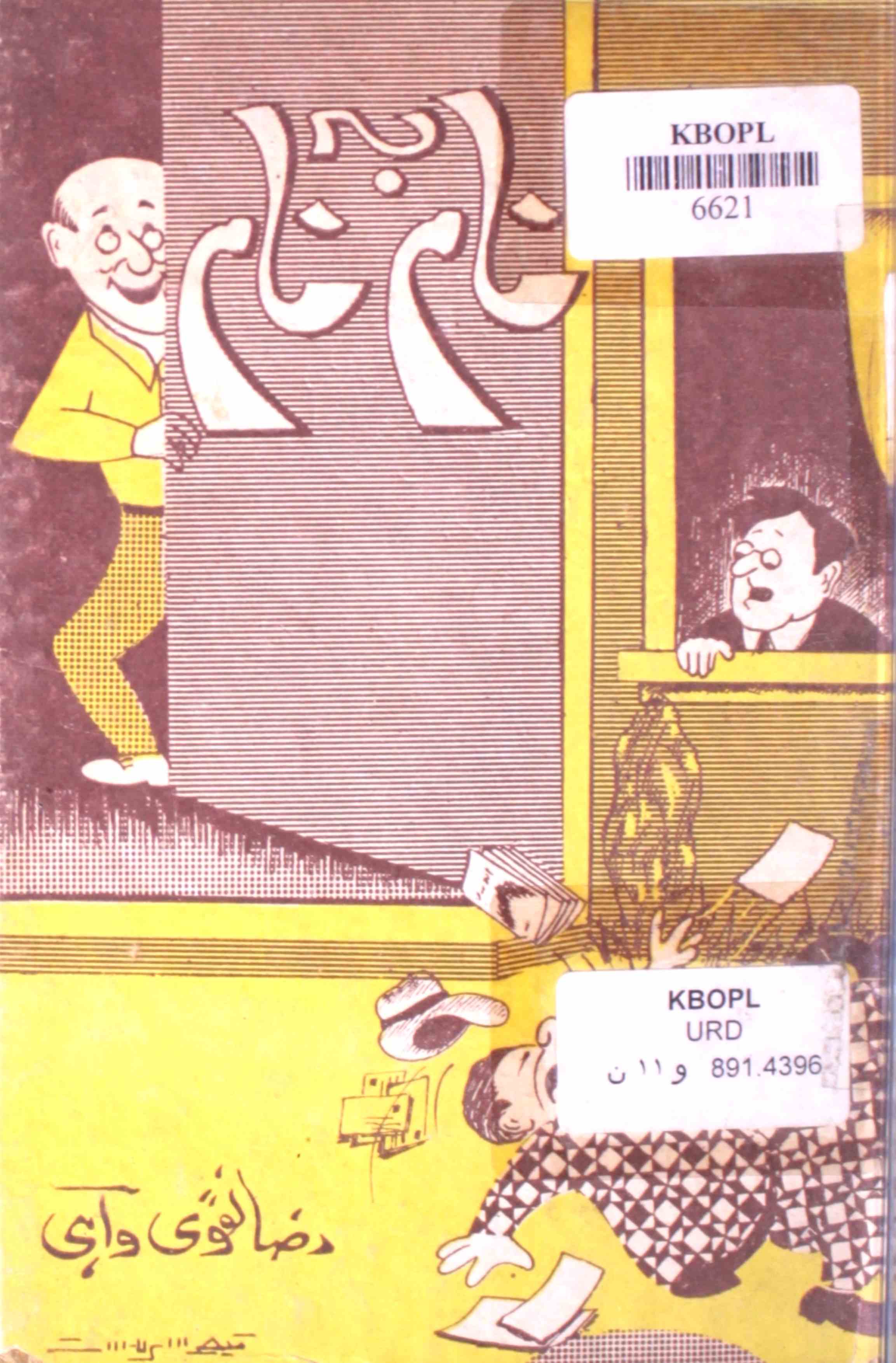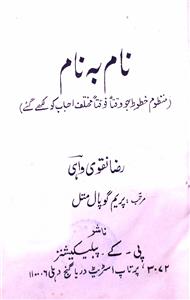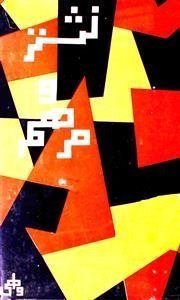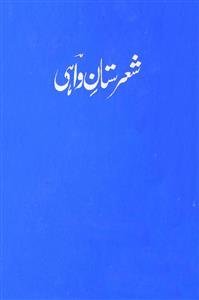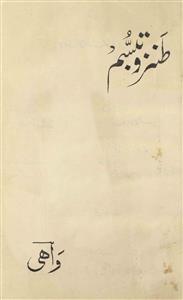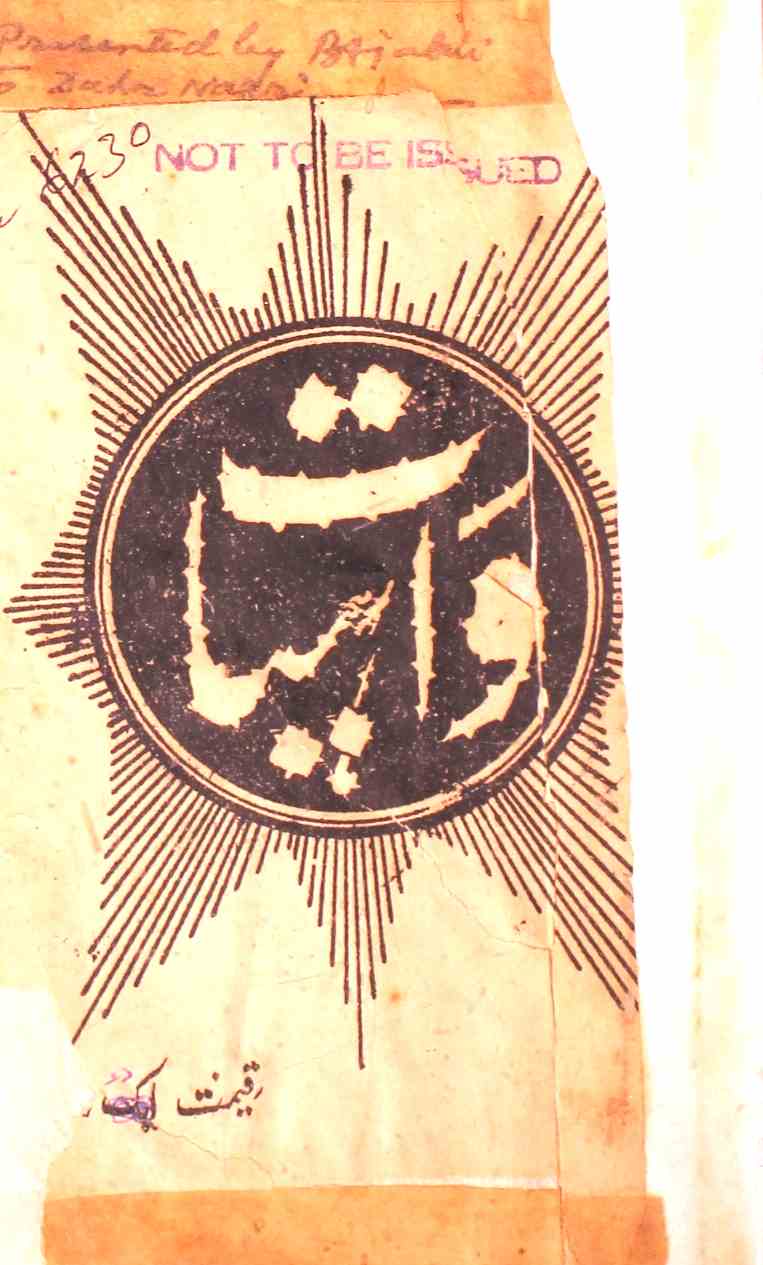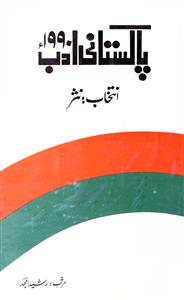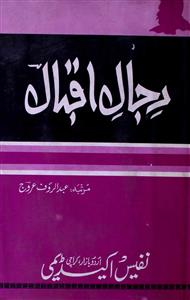 For any query/comment related to this ebook, please contact us at haidar.ali@rekhta.org
For any query/comment related to this ebook, please contact us at haidar.ali@rekhta.org
About The Book
آزادی کے بعد ہندوستان میں جن لوگوں نے مزاحیہ شاعری میں نام پیدا کیا ان میں رضا نقوی واہی کا نام اہمیت کا حامل ہے۔ رضا نقوی کی شاعری معاشرے کے اس بڑے طبقے کی سرگرمیوں، رجحانات اور تہذیب و تمدن سے جنم لیتی ہے جسے عوام کہا جاتا ہے۔ ان کی تکالیف، مسائل، غم اور خوشیاں رضا نقوی کے مشاہدے میں آ کر مزاحیہ اسلوب میں اس طور پر ڈھلتی ہیں کہ قاری لطف اندوز ہونے کے ساتھ سیاسی سماجی خامیوں اور ناہمواریوں سے واقفیت اختیار کرتا ہے۔ زیر نظر کتاب "کلام نرم و نازک" واہی نقوی صاحب کا چوتھا شعری مجموعہ ہے۔ اس مجموعہ میں واہی کی طنزیہ و مزاحیہ نظمیں شامل ہیں۔ اس کے علاوہ واہی نقوی کے 15 منظوم خطوط کو بھی اس مجموعہ میں شامل کیا گیا ہے۔ اس مجموع کلام کو 1972ء میں ڈاکٹر مناظر عاشق ہر گانوی نے مرتب کرکے نسیم بک ڈپو لکھنو کے زیر اہتمام چھپوایا تھا۔
About The Author
Razi Naqvi Wahi is considered to be one the most prominent poets of humour and satire in Urdu. He was born at a small place called Khujwa in the Siwan district of Bihar in 1914. His family name was Syed Mohammad Raza Naqvi and he chose ‘Wahi’ as his pen name. He received his early education in the local middle school. Later, he shifted to Patna for his education. He passed his Matriculation examination from Patna Collegiate School in 1930 and Intermediate examination from Patna University in 1932. Subsequently, he joined Sufi Commercial College under Calcutta University for acquiring his degree of diploma in commerce. In 1937, he joined the secretariat of Bihar Legislative Assembly as an official Urdu reporter. He progressed well in his career and retired as Assistant Secretary in 1974.
Wahi started his literary career with writing serious poetry but he moved toward satire and humour in due course. With a keen eye on follies and foibles and sensitive approach towards language, he distinguished himself as a poet of humour and satire. This is well borne by his several anthologies that include Waahiyaat (1950), Tanz-o-Tabassum (1963), Nashtar-o-Marham (1968), Kalam-e-Narm-o-Nazuk (1972), Naam Ba Naam (1974), Matta-e-Wahi (1977), Sheristaan-e-Wahi (1983), Manzoomat-e Wahi (1992), Tarkash-e Wahi (1995) and Chatpati Nazmein (in Hindi) in 1971. Wahi also compiled and edited the complete poetry of Jamil Mazhari and also edited a voluminous special issue on his contemporary fiction writer and critic Akhtar Orenvi. A recipient of several awards, he passed away in 2002.
 For any query/comment related to this ebook, please contact us at haidar.ali@rekhta.org
For any query/comment related to this ebook, please contact us at haidar.ali@rekhta.org
